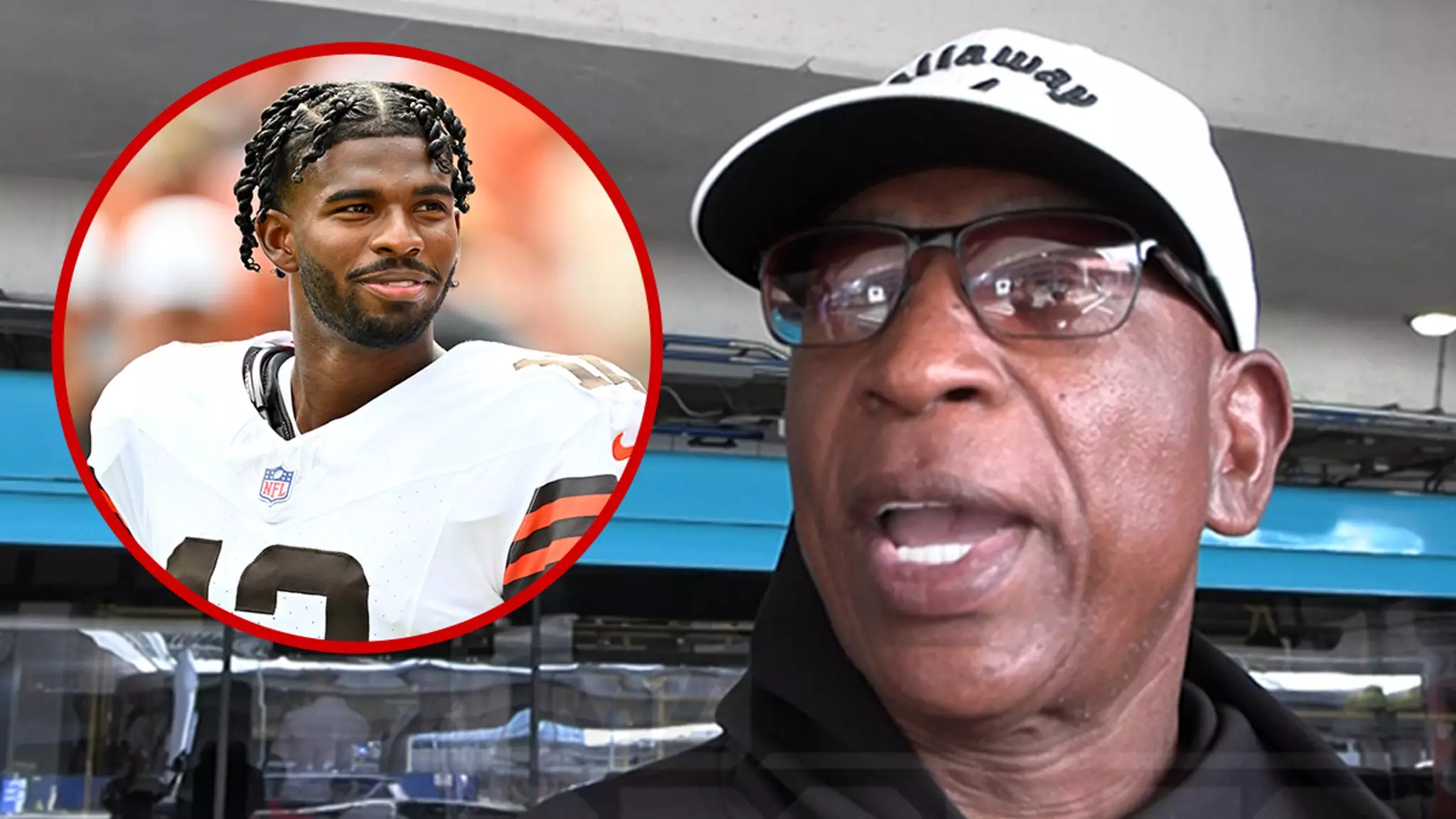Eric Dickerson’s outspoken critique of the Cleveland Browns and their handling of Shedeur Sanders underscores a troubling reality in professional football—one where talent, especially from groundbreaking athletes, often faces systemic barriers. Dickerson’s blunt assessment that the Browns are “horrible” and his explicit wish for Sanders to leave reflect not only personal disappointment but also a broader frustration with NFL’s perceived biases. His comments question whether league policies and organizational decisions are truly merit-based or if they are influenced by entrenched biases that stifle fresh talent from less traditional pathways.
What makes Dickerson’s stance compelling is his willingness to confront uncomfortable truths. His assertion that the NFL might have deliberately sidelined Shedeur Sanders because of his background or the color of his skin is provocative. It hints at a deeper issue: the persistent undercurrent of elitism and racial bias that continues to influence the league’s talent acquisition strategies. His reference to Mel Kiper’s comments and claims of NFL interference aim to shed light on a perhaps overlooked reality—talent isn’t evaluated in a vacuum but often weighed down by stereotypes and preconceived notions.
Institutional Inertia vs. Personal Loyalty
The NFL’s apparent reluctance to give Shedeur Sanders a real shot exposes a pattern of inertia prevalent in professional sports institutions. Many teams seem hesitant to develop young players, especially those with unconventional backgrounds or from programs outside the traditional pipeline. Dickerson’s critique about the Browns’ questionable handling of Sanders echoes a broader trend where prospects are judged not solely on skill but on fit within existing organizational molds.
His direct call for Sanders to “get out” suggests a belief that NFL teams often prioritize short-term success over long-term potential. The league’s system, which prominently favors established veterans and reinforces a hierarchy that often excludes newcomers with high ceilings, seems to be at odds with the progressive talent development that modern sports should champion. Dickerson’s frankness hits a nerve by questioning whether this cycle will ever truly change or if the NFL remains beholden to its archaic standards.
Confronting Systemic Flaws: A Wake-Up Call for the League
Dickerson’s criticisms extend beyond teams—that NFL franchises, and perhaps the league at large, operate under a veil of secrecy and favoritism that often shields flawed decision-making. His claim that NFL officials might have actively sought to limit Sanders’s opportunities reveals a disturbing possibility: that even the most talented players might be thwarted not because of inability, but because of league politics.
This open declaration should serve as a wake-up call for fans and stakeholders who believe in fairness and meritocracy. If experienced voices like Dickerson’s are calling out perceived injustices, what does that say about the transparency and integrity of NFL decision-making processes? Are the talents of young athletes like Sanders truly being evaluated with honesty, or are they falling victim to predatory practices rooted in bias and a need to preserve exclusivity?
By bravely speaking out, Dickerson is challenging the league to reflect on its priorities. Such honesty potentially sparks demand for accountability, forcing the NFL to confront its flaws and work toward more equitable talent evaluation and development systems. The future of football could hinge on whether this candid critique sparks meaningful reform, or if entrenched interests continue to champion the status quo.

